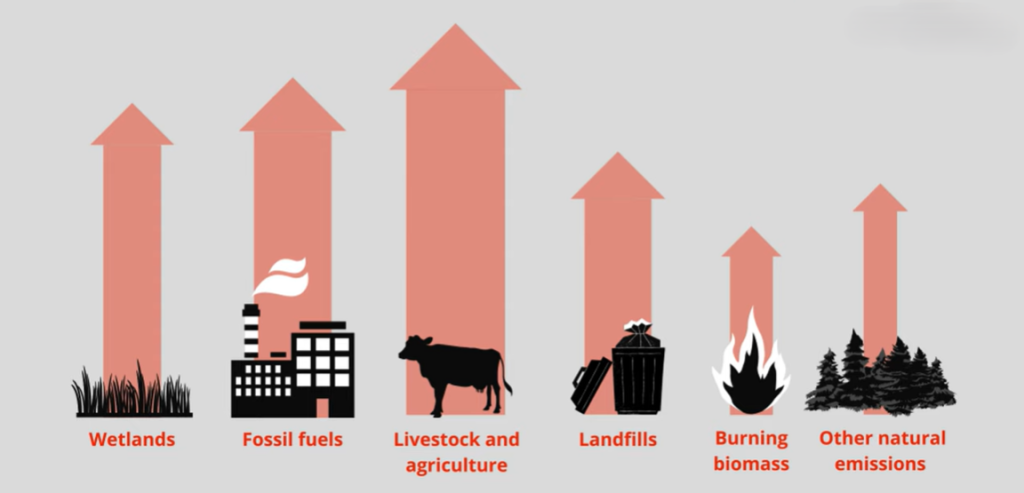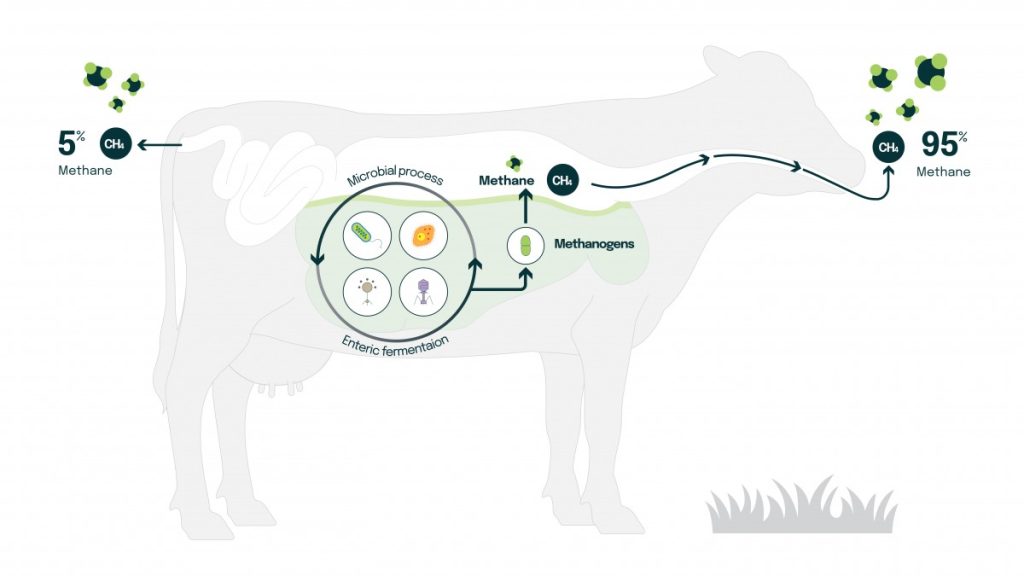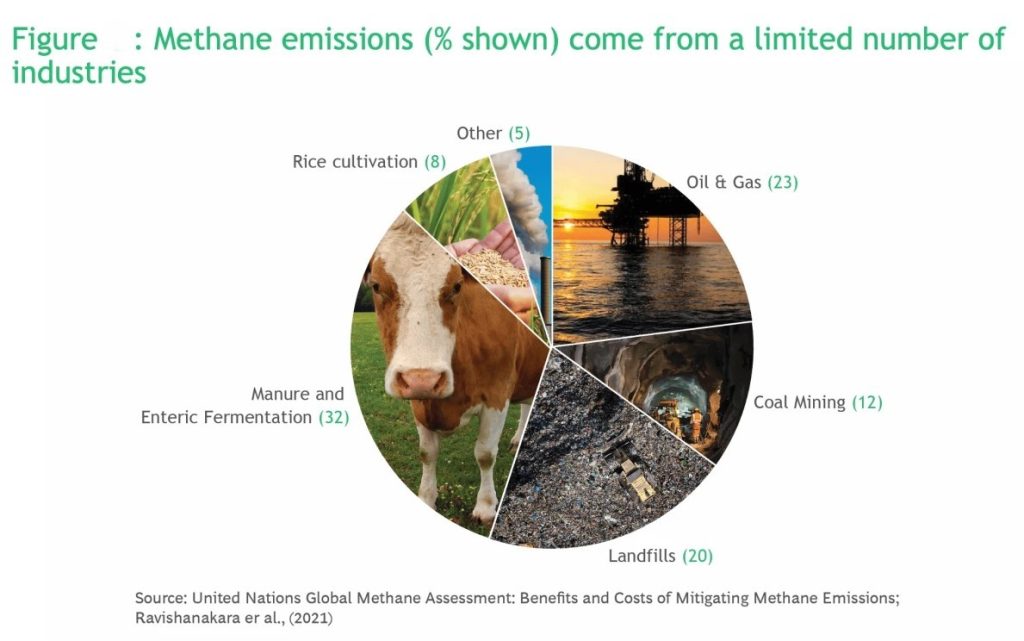Through Methane Matters, I aim to raise awareness about methane emissions and their devastating impact on global warming and climate change.It’s crucial to spread awareness because methane’s global warming potential is often overlooked. Yet it’s a key driver of climate change. By educating others, I hope to inspire action to reduce methane emissions which can have a rapid impact on slowing global warming. As a responsible member of the global community, I believe it’s essential to share knowledge and promote behavior change to protect the planet. By working together, we can mitigate methane emissions and create a more sustainable future. By focusing on methane, we can achieve rapid and measurable progress in the fight against global warming.
My initiative will provide resources, support, and advocacy to help individuals ,businesses, and governments take action and make a tangible difference in mitigating climate change.

Ivanka Sonkusare
Founder,Methane Matters
Cows: The Leading Contributor to Methane Emissions in Livestock and Agriculture
Cows, particularly those in dairy and beef production, are a major source of methane emissions, making them the leading contributor to greenhouse gas emissions within livestock and agriculture. Methane (CH₄) is a potent greenhouse gas, with over 25 times the global warming potential of carbon dioxide over a 100-year period. In the context of agriculture, cattle are the primary livestock responsible for methane emissions due to their unique digestive systems and the ways their waste is managed. Below are the key aspects of why cows are the leading contributors to methane emissions in both livestock and agriculture.


Enteric Fermentation: The Main Source of Methane
Methane is the main greenhouse gas produced in grazing systems. Ruminant livestock (cattle, sheep, and goats) have microbes in their rumen called methanogens. These microbes produce methane (from the fermentation of feed) that is then belched out. Feed with lower digestibility produces more methane than higher quality feeds. Belched methane represents energy lost from your production system that might otherwise be converted to the milk, meat or fibre that generates income.
Methane is a major inefficiency in animal production systems with 6% to 10% of gross energy intake lost as methane. This energy loss has been calculated as the equivalent of up to:
- 55 to 60 days grazing intake for ewes and steers
- 40 days for dairy cows.
Livestock urine and dung deposition, nitrogen fertiliser applications and atmospheric nitrogen fixed by legumes are the largest inputs of reactive nitrogen to soil for grazing enterprises.
- Process: Cows, like other ruminants, have a unique digestive system that includes a four-chambered stomach. In the rumen, microbes break down fibrous plant material, a process called enteric fermentation. During this digestion, methane is produced as a byproduct by certain microbes (methanogens).
- Methane Release: The methane is released primarily through burping (eructation), though some may be exhaled through the respiratory system. This process accounts for the largest share of methane emissions from cows.
- Impact: Enteric fermentation can contribute to as much as 70-90% of a cow’s total methane emissions, depending on the diet and other factors.

Manure Management: A Secondary Source
- Decomposition: When cows’ manure is stored in anaerobic (low-oxygen) conditions, such as in lagoons or slurry pits, methane is produced through the microbial breakdown of organic matter.
- Storage Systems: The methane emissions from manure management are influenced by the way the manure is handled. Systems that store manure in liquid form or in large piles under anaerobic conditions tend to release more methane.
- Contribution: While manure management contributes significantly to methane emissions, it typically accounts for a smaller share compared to enteric fermentation.
Diet and Feed Composition:
- Influence of Feed: The types of food cows consume play a crucial role in the amount of methane produced during digestion. High-fiber, low-digestibility feed, such as grasses and silage, typically results in higher methane emissions.
- Effect of Grains and Additives: Feed that is higher in energy density, like grains or certain additives (e.g., fats or oils), can reduce methane production. Research suggests that dietary modifications can lower methane emissions by up to 30% in some cases.
- Sustainability: Balancing the nutritional needs of cows with lower-methane-producing feed is a key challenge for the dairy and beef industries as they seek more sustainable practices.
Global Impact:
- Climate Change Contribution: Methane is a powerful greenhouse gas, with over 25 times the global warming potential of carbon dioxide over a 100-year period. The livestock sector, including cows, is responsible for about 40% of global methane emissions, with enteric fermentation being the largest contributor.
- Agricultural Emissions: Cattle are the largest single source of agricultural methane emissions worldwide. This makes reducing methane emissions from cows an essential part of efforts to mitigate climate change.
Mitigation Strategies:
Dietary Adjustments:
- By Improving cow diets is a key strategy to reduce methane emissions, which is a significant concern in the agriculture industry due to its role as a potent greenhouse gas. By adding fats or oils to the diet, for instance, it can alter the microbial processes in the rumen, leading to reduced methane production. Tannins, found in certain plants, also have the potential to reduce methane emissions by inhibiting specific microbes responsible for methane production.
- Researchers are also exploring feed additives like 3-NOP (3-nitrooxypropanol), which can reduce methane production in the rumen.3-NOP (3-nitrooxypropanol) is one of the most promising feed additives for this purpose. It works by inhibiting an enzyme in the rumen that’s responsible for methane production, effectively reducing emissions without harming the cows’ overall health or productivity.
Manure Management Technologies:
- Innovations in manure management, such as using aerobic digestion systems, biogas recovery, or adding compounds that reduce methane-producing bacteria, can help curb methane emissions from manure.Absolutely, manure management is another critical area for reducing methane emissions in livestock farming. Manure is a significant source of methane, as anaerobic conditions in manure storage systems (like lagoons or pits) promote methane-producing bacteria. Innovations in manure management aim to reduce these emissions by modifying the conditions in which manure is stored and treated.
- Biogas recovery is another important technology. By capturing the methane produced in manure storage systems and converting it into biogas, farms can generate renewable energy, which can be used for power or heat. This approach not only reduces emissions but can help farms become more energy self-sufficient.
- Adding compounds to manure, such as certain chemicals or microbes that inhibit methane-producing bacteria, is another strategy. For example, some compounds can suppress the activity of methanogens (the bacteria responsible for methane production), leading to lower emissions.
Selective Breeding:
- Selective breeding is a really exciting and innovative approach to tackling methane emissions in livestock. The idea is to identify and breed cows that naturally produce less methane due to variations in their genetics. Studies have shown that there is genetic variability in methane production among individual cows, with some producing significantly less methane than others under similar conditions.
- By selecting for traits that are linked to lower methane emissions, breeding programs can gradually reduce the methane output of entire herds over time. This can be achieved by looking for genetic markers associated with lower emissions, as well as traits like feed efficiency and overall health, which can indirectly contribute to reduced methane production. For example, cows that are more efficient at converting feed into energy might produce less methane because they have a more efficient digestive system.
- The key benefit of selective breeding is that it can provide a long-term, sustainable solution. Unlike feed additives or dietary changes that need to be applied consistently, breeding programs can help produce generations of cows that inherently have a smaller environmental footprint. Plus, it doesn’t require farmers to change their management practices as much, making it a more scalable solution across different types of operations.
- Educate and raise awareness about methane’s impact
- Develop and implement effective reduction strategies
- Support innovative solutions and technologies
